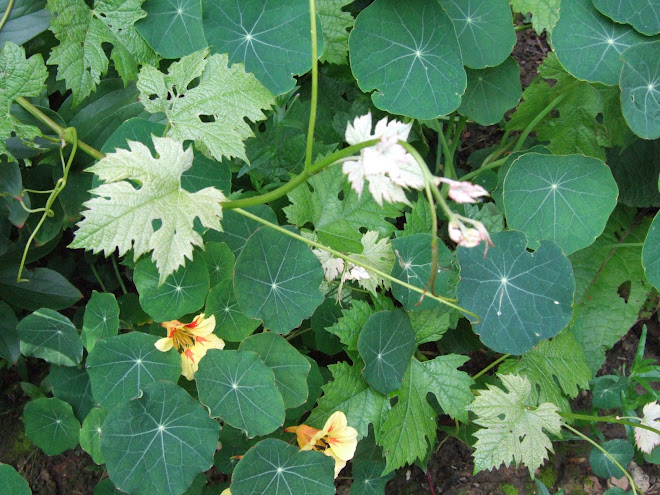Published today in The Times, the obituary of my favourite children's author, Philippa Pearce.
"In 1958 Philippa Pearce published Tom’s Midnight Garden. The Times Literary Supplement called it the only undoubted children’s classic since Alice’s Adventures in Wonderland, and Marghanita Laski recruited her to sit on the Arts Council literature panel which she chaired.
Tom’s Midnight Garden has never been out of print and continues to be loved by children, parents, teachers and librarians. Its fame spread about the world: in Japan its author was mobbed in the street, elsewhere she was lionised.
Tom’s Midnight Garden has never been out of print and continues to be loved by children, parents, teachers and librarians. Its fame spread about the world: in Japan its author was mobbed in the street, elsewhere she was lionised.
"Ann Philippa Pearce was born in 1920 in Great Shelford, a village outside Cambridge, where her father was a miller on the river that was at the centre of her first book, Minnow on the Say (1955). For generations the family had been millers, and her mother came from similar yeoman stock. It was a stable background for the four children, who lived close to nature and animals, to their father’s work, to a friendly village, and Pearce’s books were steeped in these kind of childhood experiences.
"Late in life she set down a charming mélange of reflections on these past times, privately printed as Logbook (2000), whose title punned on the old tree trunk in her garden where she liked to sit. It featured too in her recent story of a bewitched mole, The Little Gentleman.
Pearce went to the Perse School for Girls in Cambridge, then to Girton College where she read English and history. After graduating, she joined the Civil Service but soon moved to more congenial work as a producer for the BBC schools broadcasting department and then as an editor in the education division of Oxford University Press. In 1960 she moved on to oversee children’s books for André Deutsch.
Pearce went to the Perse School for Girls in Cambridge, then to Girton College where she read English and history. After graduating, she joined the Civil Service but soon moved to more congenial work as a producer for the BBC schools broadcasting department and then as an editor in the education division of Oxford University Press. In 1960 she moved on to oversee children’s books for André Deutsch.
"Pearce brought high professionalism and sensitivity to editorial commissions and to working with other people’s texts, whether in her adaptation of George Sand’s Wings of Courage (1982) and, as a picture book, Beauty and the Beast (1972), or in her magical conversion of the tangled memoirs of Sir Brian Fairfax-Lucy into that most moving of children’s books, The Children of the House (1968). Under the name of Warrener she produced texts to celebrate the 50th anniversary of the Bunnykins characters on Royal Doulton’s nursery pottery.
"Pearce married Martin Christie in 1963 but was widowed two years later, by which time she had a daughter. She had moved to Gospel Oak, London, where she worked freelance until eventually moving back to Great Shelford.
"Her creative writing changed markedly after Tom’s Midnight Garden. In its successor, A Dog So Small, which deals with a boy’s desire to own a dog, Pearce developed the strain of naturalism, a care for the everyday, that was to characterise her later storytelling.
"Much of her later work took the form of short stories such as The Elm Street Lot, originally written for the BBC’s Jackanory (1969) and What the Neighbours Did (1972), along with some tales of the supernatural. But two longer works achieved a remarkable fusion of story with insight into troubled characters: The Battle of Bubble and Squeak (1978), which won the Whitbread Children’s Book Award, and The Way to Sattin Shore (1983).
"Settled into the familiar scenes of her own childhood, Pearce became again the countrywoman she had always seemed, self-sufficient in vegetables and fruit from her own garden, with chickens at one end, a goat (for cheese and milk) at the other, a dog and a cat and, in the meadow, the child’s pony. Keeping a hospitable house ran parallel with literary work. She reviewed for the TLS and The Guardian, was appointed OBE in 1997 and elected a Fellow of the Royal Society of Literature.
"A woman of apparent serenity with an inner life that may have been more turbulent than many suspected, she had, perhaps supremely, a quality of integrity. She could be trusted; she had principles that she lived by and friends and family to whom she was loyal, a certain stubbornness, a tender heart, great warmth when it was needed, and honesty in all things. Children, who see through the phony, liked the world she put into her books, which was hardly surprising since it reflected her qualities.
"Pearce took great interest in the establishment of Seven Stories, the centre for children’s books in Newcastle upon Tyne, whose opening exhibition had a section on her work. It was during a visit to the centre that she had the stroke from which she died.
"Philippa Pearce, OBE, writer, was born on January 23, 1920. She died on December 21, aged 86


No comments:
Post a Comment